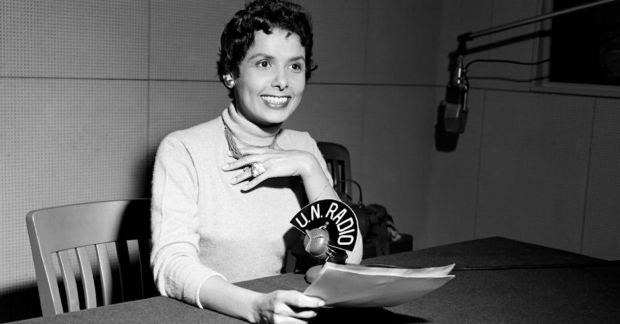Brooks Atkinson Theatre to Be Renamed for Performer and Activist Lena Horne

(© UN Photo/AF)
The Nederlander Organization will rename the Brooks Atkinson Theatre — the Broadway house currently named for influential New York Times theater critic Justin Brooks Atkinson — in honor of civil rights activist and performer Lena Horne. The Lena Horne Theatre (home to the Tony-nominated musical Six) will be the first Broadway venue named for a Black woman.
"We are proud to take this moment to rename one of our theaters in honor of the great civil rights activist, actress, and entertainer Lena Horne," said Nederlander Organization President James L. Nederlander in a statement. "I am so honored to have known Lena. She became a part of our family over the years. It means so much to me that my father was the producer of Lena Horne: The Lady and Her Music, and it is my privilege, honor, and duty to memorialize Lena for generations to come."
The announcement comes in the wake of a pledge made last year by the Nederlander Organization, the Shubert Organization, and Jujamcyn (three major Broadway theater owners) to name at least one of their theaters for a Black artist. The pledge was made in agreement with Black Theatre United, and has already prompted the announcement that the Shubert Organization would rename the Cort Theatre the James Earl Jones Theatre. Jujamcyn had previously renamed its Virginia Theatre the August Wilson Theatre back in 2005.
Horne, who passed away at the age of 92 in 2010, had a groundbreaking career that spanned film, television, and stage. She earned a 1958 Tony nomination for her performance in Jamaica, and received a Special Tony Award (as well as two Grammy Awards) in 1981 for her musical revue Lena Horne: The Lady and Her Music. Horne was also extremely involved in the Civil Rights Movement, refusing to perform for segregated audiences during her time with the USO, and working in association with the NAACP, S.N.C.C., and the National Council of Negro Women. She additionally worked with Eleanor Roosevelt in an effort to pass anti-lynching laws.










